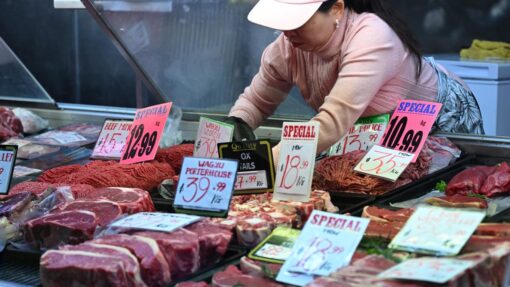Climate, koala alarm as coal mines cleared to dig more
Liv Casben |

Extending the life of three coal mines will impact groundwater supplies and endangered species, conservationists and farmers say, with one of the expansions able to destroy hundreds of hectares of koala habitat.
Critics say the three coal mine expansions in northwest NSW and the Hunter region will emit 1.4 billion tonnes of carbon pollution across the lives of the mines – more than three times Australia’s total annual emissions – and allow two larger mines to operate until mid-century.
The sign-off by Environment Minister Tanya Plibersek applies to coal producer Whitehaven’s Narrabri underground mine’s stage three expansion project, Ashton Coal’s Ravensworth mine and Mach Energy’s Mount Pleasant optimisation project.

Conservationists are alarmed the conditions on the Narrabri mine in the state’s northwest allow more than 450 hectares of koala habitat to be cleared.
“This is an area where the local koala population used to thrive,” Georgina Woods from community group Lock the Gate said.
She was upset about the impact the Mount Pleasant mine in the Hunter region would have on a threatened legless lizard, with approval given for some of its habitat to be cleared.
“All three of these coal mining projects will affect groundwater and the decision to approve them reflect the government’s priorities, which is to favour climate-changing coal mining over the sustainability of agriculture and other rural land uses.”
Sally Hunter’s cattle property is about 12km from the Narrabri coal mine, where farmers have been told nine nearby farm bores will dry up.
“They know this impact will happen,” she said.

“Why is one business allowed to effectively get rid of another business?
“They (the farms) are not going to have any water.
“The mine has said it will create 13 new jobs for 10 years and yet it’s allowed to wipe out a whole bunch of farms.”
Under the conditions of approval, Whitehaven Coal is to ensure there is no adverse effect “on the function of a water resource”.
But Ms Hunter said the community had no faith in the miners adhering to the conditions given they had breached their license before.
Whitehaven declined to comment, referring to a statement released to the ASX.
“Significant delays to this approval arising from unnecessarily protracted state and federal government assessment processes have in this case been exacerbated by indulging Green claims through the administrative and legal systems,” the statement read.
The mining sector has celebrated the “sensible” decision to extend the three “critical coal mines”, saying it would safeguard local jobs and economic stability in the region.
“It’s critical that Australia’s coal exports continue to meet the strong international demand,” Minerals Council CEO Tania Constable said.
“These approvals ensure that our economy benefits, while projects like these operate under the strictest environmental guidelines.”
But critics say the decision undermines Australia’s credibility in tackling rising emissions.
“Every decision like this betrays future generations,” Climate Council CEO Amanda McKenzie said.
Ms Plibersek did not respond to questions about the criticism, with a spokesperson saying it was a matter of applying the law.
The Labor government’s “Nature Positive” legislation remains stalled in the Senate.
AAP


